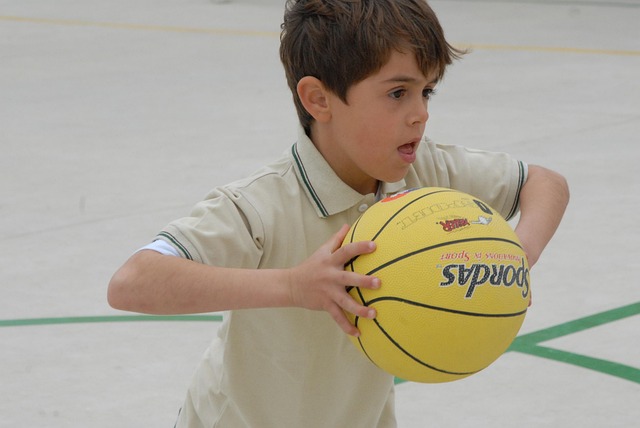In today’s digital age, where screens dominate children’s attention and sedentary lifestyles have become the norm, the importance of sports participation for young people cannot be overstated. Sports offer far more than just physical exercise – they provide a comprehensive foundation for personal development that shapes character, builds resilience, and creates lifelong healthy habits. Every parent should seriously consider enrolling their children in sports activities, as the benefits extend well beyond the playing field.
Physical Health: The Foundation of Well-being

The most obvious benefit of sports participation is improved physical health. Children who engage in regular athletic activities develop stronger cardiovascular systems, improved muscle tone, and better coordination. Sports help combat the growing epidemic of childhood obesity by providing structured, enjoyable physical activity that burns calories and builds lean muscle mass.
Regular participation in sports also strengthens bones and joints, which is particularly crucial during childhood when skeletal development is at its peak. Activities like running, jumping, and weight-bearing exercises contribute to optimal bone density, reducing the risk of osteoporosis later in life. Additionally, sports participation improves flexibility, balance, and motor skills, creating a solid foundation for lifelong physical competence.
The immune system benefits significantly from regular physical activity. Children who play sports tend to have stronger immune responses, leading to fewer sick days and better overall health. The improved circulation and lymphatic drainage that comes with exercise helps the body fight off infections more effectively.
Mental Health and Emotional Development

Sports participation provides tremendous mental health benefits that are often overlooked. Physical activity stimulates the release of endorphins, natural mood elevators that help combat depression and anxiety. Children who participate in sports report higher levels of happiness and self-confidence compared to their sedentary peers.
The structured nature of sports helps children develop emotional regulation skills. Learning to manage disappointment after a loss, channel excitement after a victory, and maintain focus during intense competition are invaluable life skills. Sports teach children that setbacks are temporary and that persistence leads to improvement, fostering a growth mindset that serves them well academically and professionally.
Regular physical activity also improves sleep quality, which is essential for cognitive development and emotional stability. Children who play sports typically fall asleep faster and enjoy deeper, more restorative sleep, leading to better concentration and mood regulation during waking hours.
Social Skills and Teamwork
Sports provide an ideal environment for developing crucial social skills. Team sports, in particular, teach children how to collaborate effectively, communicate clearly, and support their teammates. These experiences help shy children build confidence while teaching more outgoing children the importance of listening and cooperation.
Through sports, children learn to interact with diverse groups of people, including teammates from different backgrounds, coaches with varying teaching styles, and competitors with different skill levels. This exposure helps develop empathy, cultural awareness, and social adaptability – skills that are increasingly important in our interconnected world.
The friendships formed through sports often last a lifetime. The shared experiences of training, competing, and overcoming challenges together create strong bonds that extend far beyond the athletic arena. These relationships provide social support and networking opportunities that can benefit children throughout their lives.
Character Building and Life Skills
Sports are an excellent vehicle for character development. The values learned through athletic participation – discipline, respect, integrity, and perseverance – form the foundation of strong moral character. Children learn to follow rules, respect authority figures, and accept responsibility for their actions and performance.
The goal-setting nature of sports teaches children how to work systematically toward objectives. Whether aiming to improve personal performance, contribute to team success, or master new skills, young athletes learn the process of setting realistic goals, creating action plans, and measuring progress. These skills translate directly to academic and professional success.
Time management becomes essential when balancing sports with school and other activities. Student-athletes often develop superior organizational skills as they learn to prioritize tasks, manage schedules efficiently, and make the most of limited time. These abilities serve them well throughout their educational journey and into their careers.
Academic Performance Enhancement
Contrary to concerns that sports might detract from academic performance, research consistently shows that student-athletes often outperform their non-athletic peers in the classroom. The discipline required for sports training transfers to study habits, while the time management skills developed through balancing athletics and academics improve overall efficiency.
Physical activity increases blood flow to the brain, enhancing cognitive function, memory, and concentration. Regular exercise has been shown to improve academic performance, particularly in subjects requiring sustained attention and problem-solving skills. The mental toughness developed through sports helps students persist through challenging academic material and maintain focus during long study sessions.
Leadership Development

Sports provide numerous opportunities for leadership development. Whether serving as team captain, mentoring younger players, or simply demonstrating good sportsmanship, young athletes learn to lead by example. They develop communication skills necessary to motivate teammates, resolve conflicts, and represent their teams with dignity.
The leadership skills developed through sports are highly transferable to other contexts. Former student-athletes often excel in professional environments because they understand how to motivate others, work under pressure, and make decisions quickly and effectively.
Long-term Health Benefits
The habits formed during childhood often persist into adulthood. Children who participate in sports are more likely to maintain active lifestyles throughout their lives, reducing their risk of chronic diseases such as diabetes, heart disease, and certain cancers. The appreciation for physical fitness developed through sports creates a foundation for lifelong wellness.
Conclusion
The benefits of sports participation for children extend far beyond physical fitness. From improved mental health and social skills to character development and academic enhancement, sports provide a comprehensive platform for personal growth. In an era where childhood obesity and mental health issues are rising concerns, sports offer a proven solution that addresses multiple challenges simultaneously.
Parents who encourage their children to participate in sports are investing in their long-term success and well-being. The lessons learned on the playing field – teamwork, perseverance, leadership, and resilience – become the building blocks for successful, fulfilling lives. Every child deserves the opportunity to experience the transformative power of sports participation.
